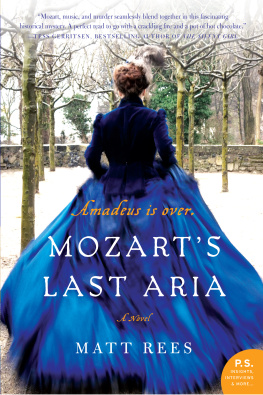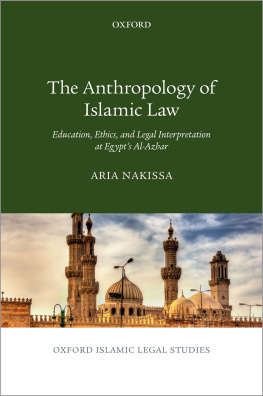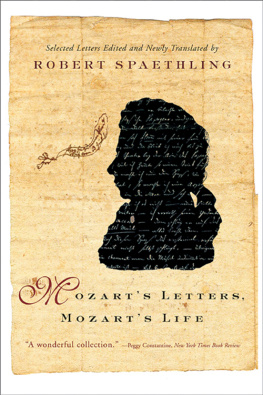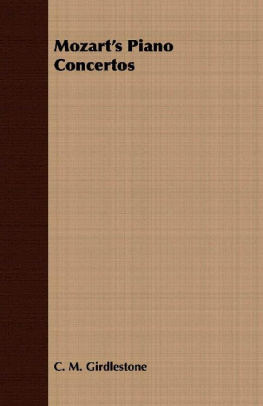Matt Rees - Mozarts Last Aria
Here you can read online Matt Rees - Mozarts Last Aria full text of the book (entire story) in english for free. Download pdf and epub, get meaning, cover and reviews about this ebook. year: 2011, publisher: HarperCollins, genre: Detective and thriller. Description of the work, (preface) as well as reviews are available. Best literature library LitArk.com created for fans of good reading and offers a wide selection of genres:
Romance novel
Science fiction
Adventure
Detective
Science
History
Home and family
Prose
Art
Politics
Computer
Non-fiction
Religion
Business
Children
Humor
Choose a favorite category and find really read worthwhile books. Enjoy immersion in the world of imagination, feel the emotions of the characters or learn something new for yourself, make an fascinating discovery.
- Book:Mozarts Last Aria
- Author:
- Publisher:HarperCollins
- Genre:
- Year:2011
- Rating:4 / 5
- Favourites:Add to favourites
- Your mark:
- 80
- 1
- 2
- 3
- 4
- 5
Mozarts Last Aria: summary, description and annotation
We offer to read an annotation, description, summary or preface (depends on what the author of the book "Mozarts Last Aria" wrote himself). If you haven't found the necessary information about the book — write in the comments, we will try to find it.
Mozarts Last Aria — read online for free the complete book (whole text) full work
Below is the text of the book, divided by pages. System saving the place of the last page read, allows you to conveniently read the book "Mozarts Last Aria" online for free, without having to search again every time where you left off. Put a bookmark, and you can go to the page where you finished reading at any time.
Font size:
Interval:
Bookmark:
Mozarts
LAST ARIA
A Novel
MATT REES

To Devorah,
who is all the music I need.
In October 1791 Wolfgang Amadeus Mozart, the greatest musical genius the world has ever seen, told his wife he had been poisoned. Six weeks later, at the age of thirty-five, he was dead.
The truth, the truth, even if it be a crime!
The Magic Flute, Act I, scene 18
Contents
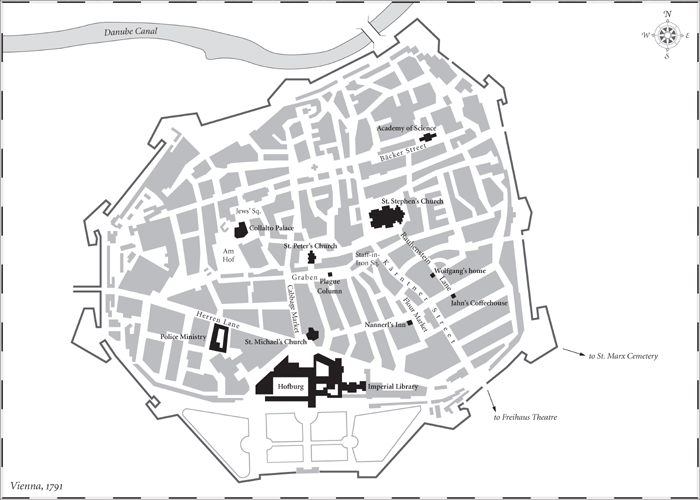
Maria Anna Nannerl Mozart , sister of the composer
Johann Berchtold , Nannerls husband
Karl Gieseke, an actor
Magdalena Hofdemel, Wolfgangs piano pupil
Baron Konstant von Jacobi, Prussian ambassador to Austria
Leopold II, Emperor of Austria
Prince Karl Lichnowsky, a patron of Wolfgang
Constanze Mozart, Wolfgangs wife
Franz Xaver Wolfgang Mozart, Wolfgangs youngest son
Maria Theresia von Paradies, blind piano virtuoso
Count Johann Pergen, Minister of Police
Emanuel Schikaneder, theatrical impresario, actor
Anton Stadler, musician and friend of Wolfgang
Baron Gottfried van Swieten , head of the Imperial Library and chief of government censorship
W hen she sang, it was hard to imagine death was so near.
Her maid let me in at my usual time in the mid-afternoon. A soprano voice of considerable purity came from the front of the apartment.
Someones visiting her, Franziska? I asked.
The maid shook her head. Shes alone, sir.
I passed through the sitting room. She was singing Zerlinas aria from Don Giovanni , in which the peasant coquette describes the desire beating in her chest. Her voice quieted for the last line, an invitation to the girls suitor: Touch me here. A raw tone infiltrated as she repeated those words to a crescendo. The concluding note weakened and quavered.
I heard a dry cough as I went through the door to Aunt Nannerls bedroom. Her thin hand conducted an imaginary orchestra through the coda.
She laid her fingers on the bedspread and dropped her chin to her chest. Was she hearing the applause of an audience? Perhaps the effort of singing exhausted her.
The lids of her blind, old eyes flickered. I pondered the life she had led and all that she had seen, gone now forever. As a musician, I understood the secrets a composer hides in the pages of his score, locked away from those unable to comprehend the fullness of his creation. I was hardly aware of it, but I had been less perceptive as a nephew.
My visits to her home near Salzburgs cathedral had been so frequent, I would have been tempted to conclude that I knew everything there was of her to be learned. Her renown as a child prodigy on the keyboard, her adolescent performances with my father in Europes great cities. Marriage to a provincial functionary and elevation to the minor nobility, so that she had borne the title Baroness of the Empire since 1792. Then after her husbands passing, her return to Salzburg, where she taught piano until her eyesight failed.
This presumption to summarize her seventy-eight years was, in fact, the thoughtless dismissal of an enfeebled old woman by a younger man. I say this with certainty, because today she revealed to me a life more fantastic even than her famous history would suggest.
Her singing done, my aunt lay silent and still in the narrow bed. She wore a lace nightshirt and a simple shawl around her shoulders. I kissed her dry cheek, drew up a chair, and recounted the gossip of the town. She didnt register my presence.
When I grew silent, she reached out, moving with a swiftness that surprised me, and pressed hard on my hand. Her fingers retained the power of a lifetime in which she sat at the piano three hours or more each day, exercising the skills that once entertained kings and princes and counts. Play for me, she said.
Her pianoforte was a fine old grand by Stein of Augsburg. I gave her the Sonata in A by my father. I wished for her in her frailty to feel roused by the dance rhythm of its Turkish rondo. As I played, she fingered a gold cross inlaid with amber which she wore around her neck. Her blank, sightless eyes were wide. When I finished, she croaked out my name: Wolfgang.
Yes, dearest aunt, I replied.
She turned to me as though she had expected someone else to respond.
When I first came to play for her, she told me that I reminded her of my father. In truth my hair and eyes are dark like my mothers and my talent at the keyboard is of a kind that he would no doubt have described as mechanical. I have nothing of his genius. But I am named Wolfgang, and perhaps for Aunt Nannerl that much resemblance sufficed. Until that moment. I sensed that she spoke directly to the man thirty-eight years dead who had been her little brother. The man famed throughout Europe and even in America as an unmatched composer.
Wolfgang Amadeus Mozart.
On that shelf. In a box inlaid with mother-of-pearl. Her hand lifted from the quilt with an unaccustomed grace that made me wonder if she were already dead and I was gazing upon her spirit, rising free of her fragile bones and decaying skin. I opened the casket and, beneath some old painted ribbons, I found a volume in nicked brown leather. I placed it in her grasp.
Ill be dead soon enough, she murmured.
May the Lord forbid it, dearest Auntie. Dont speak of such things.
She flipped back the books cover and ran her fingers over the dry, yellowed pages within. A quill pen such as few have used for years now had filled the book with lines slanting upward from left to right. I recognized the hand as her own, for she had often written to me as I toured the concert halls of Poland and Prussia. She turned a few pages and spread her bony fingers across the text. On the first line, I read a place and a date: Vienna, December 21, 1791.
She shut the book with a clap that was like a cannon shot through the silence of her apartment. In the instant that it took me to blink in fright, the leather-bound volume swung toward me and dropped into my fumbling grasp.
Dont show it to your mother, she said.
Why not? I smiled. What secrets do you keep, Aunt Nannerl?
Her faint eyebrows lifted and I felt that a much younger woman fixed me with those melancholy brown eyes.
Upon my death I shall leave to my son Leopold all that I have, she said. Hell inherit my money, my few valuable pieces of jewelry. Also my papers, my diaries, my daily books. Mostly dull chronicles of the simple routines of Salzburg and the village where I passed my married life. She sucked for breath. Her head lapsed against the pillows.
I lifted the volume in my hand. But this?
Something different. Only for you.
Is it about my father? I could ill disguise my eagerness, for I was just a few months old when he was taken from us. He has been with me always at the piano, though only as the mythic gods of Olympus could be said to have been with the Greeks when they ground wheat for flour.
My aunt swallowed hard and coughed. I thought perhaps I had been mistaken. After all, when I used to ask her about my fathers last years in Vienna, she always pleaded that she hadnt seen him after 1788, when my grandfathers will was settled in her favor and a coolness arose between the siblings. She had remained with her husband in the village of St. Gilgen. My father had continued his career in the opera houses and aristocratic salons of Vienna, until he was cut down three summers later in his thirty-sixth year.
Her lips pursed, she gathered herself. That book records the truth about events that have shaped your lifeand all musical history.
Next pageFont size:
Interval:
Bookmark:
Similar books «Mozarts Last Aria»
Look at similar books to Mozarts Last Aria. We have selected literature similar in name and meaning in the hope of providing readers with more options to find new, interesting, not yet read works.
Discussion, reviews of the book Mozarts Last Aria and just readers' own opinions. Leave your comments, write what you think about the work, its meaning or the main characters. Specify what exactly you liked and what you didn't like, and why you think so.

